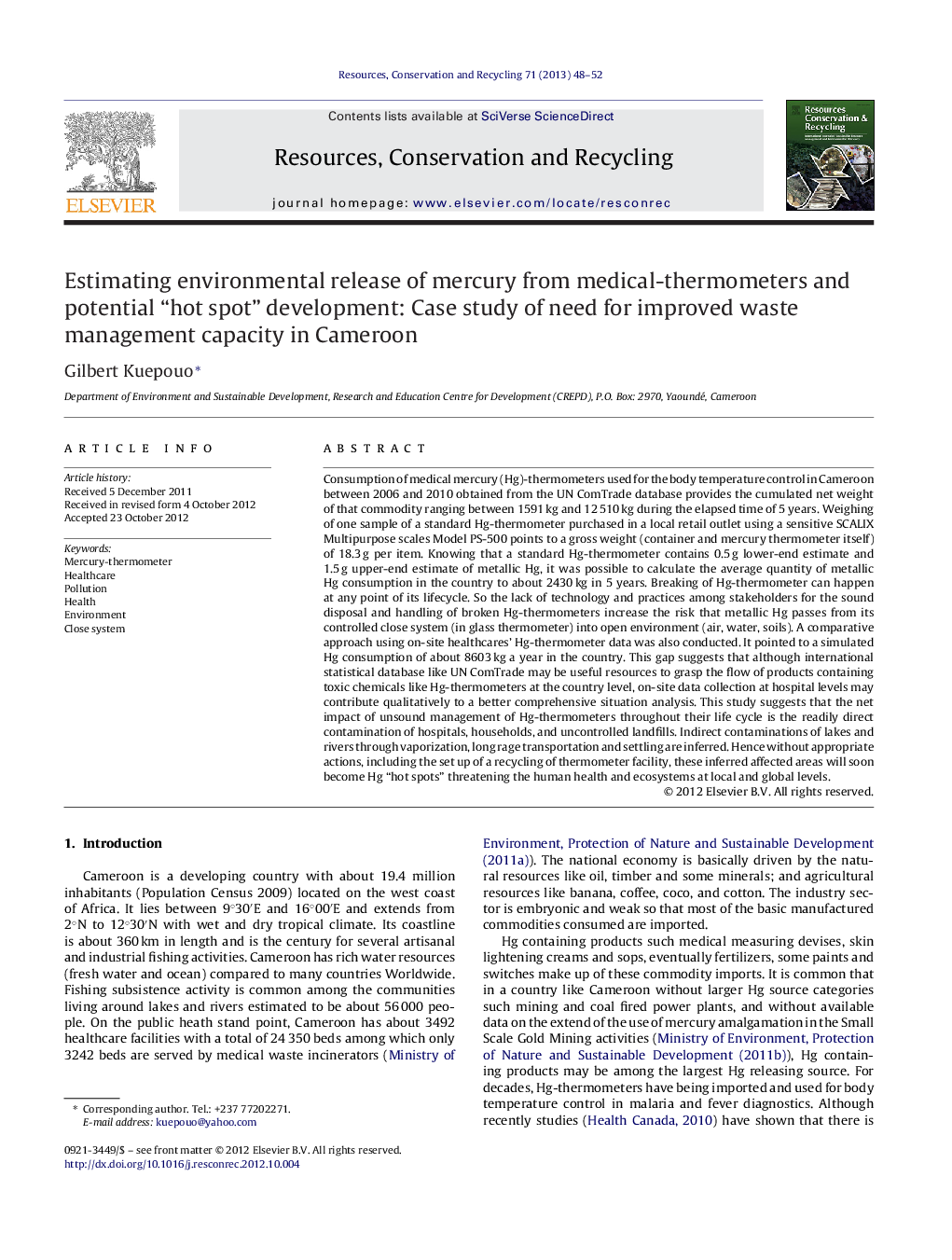| Article ID | Journal | Published Year | Pages | File Type |
|---|---|---|---|---|
| 1063209 | Resources, Conservation and Recycling | 2013 | 5 Pages |
Consumption of medical mercury (Hg)-thermometers used for the body temperature control in Cameroon between 2006 and 2010 obtained from the UN ComTrade database provides the cumulated net weight of that commodity ranging between 1591 kg and 12 510 kg during the elapsed time of 5 years. Weighing of one sample of a standard Hg-thermometer purchased in a local retail outlet using a sensitive SCALIX Multipurpose scales Model PS-500 points to a gross weight (container and mercury thermometer itself) of 18.3 g per item. Knowing that a standard Hg-thermometer contains 0.5 g lower-end estimate and 1.5 g upper-end estimate of metallic Hg, it was possible to calculate the average quantity of metallic Hg consumption in the country to about 2430 kg in 5 years. Breaking of Hg-thermometer can happen at any point of its lifecycle. So the lack of technology and practices among stakeholders for the sound disposal and handling of broken Hg-thermometers increase the risk that metallic Hg passes from its controlled close system (in glass thermometer) into open environment (air, water, soils). A comparative approach using on-site healthcares’ Hg-thermometer data was also conducted. It pointed to a simulated Hg consumption of about 8603 kg a year in the country. This gap suggests that although international statistical database like UN ComTrade may be useful resources to grasp the flow of products containing toxic chemicals like Hg-thermometers at the country level, on-site data collection at hospital levels may contribute qualitatively to a better comprehensive situation analysis. This study suggests that the net impact of unsound management of Hg-thermometers throughout their life cycle is the readily direct contamination of hospitals, households, and uncontrolled landfills. Indirect contaminations of lakes and rivers through vaporization, long rage transportation and settling are inferred. Hence without appropriate actions, including the set up of a recycling of thermometer facility, these inferred affected areas will soon become Hg “hot spots” threatening the human health and ecosystems at local and global levels.
► Two approaches of medical Hg-thermometers consumption in Cameroon were investigated. ► The overall consumption of these devices is high and is of great concern. ► The only disposal method for used Hg-thermometers is uncontrolled dumping in landfills. ► Landfills are associated with open burnings practices plus releases of mercury to environment. ► There is a need to avoid Hg hotspot development through appropriate measures.
